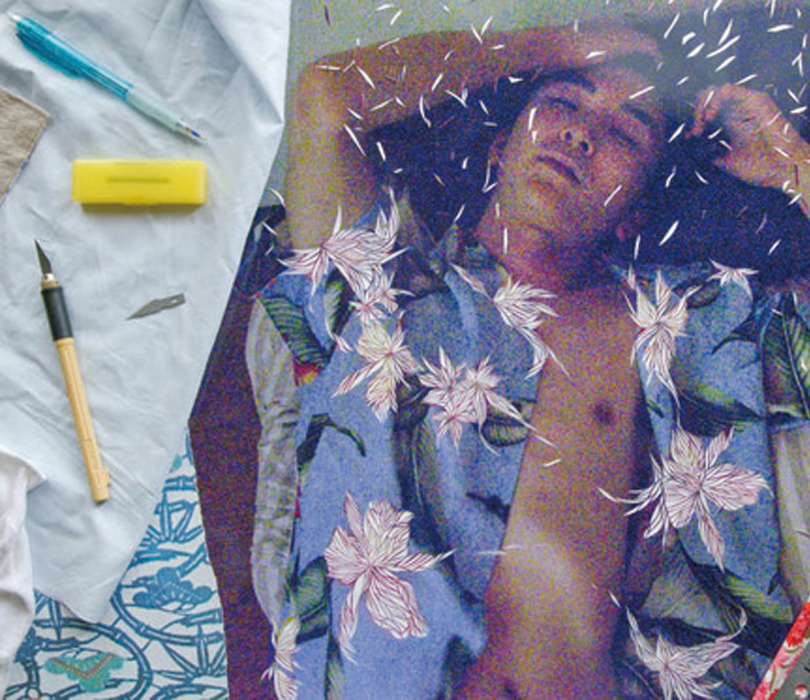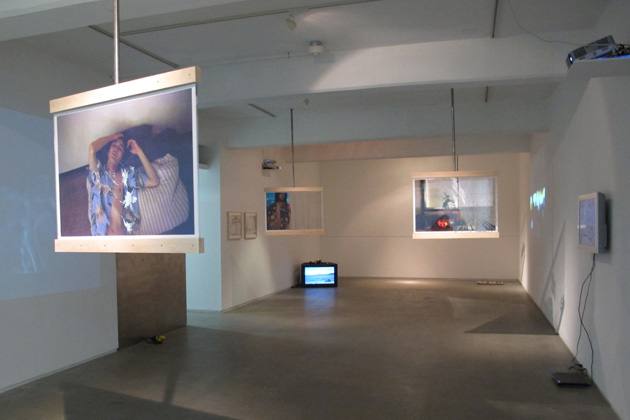
Okinawa and gay identity. Futoshi Miyagi put this theme into poetic works far distant
from cliché. You'd listen to a narrative of his closest relationships, as Okinawa and
gay identity are essential parts of his identity.
He examined the possibility of an Okinawa gay's falling love with an American gay,
whose language and culture are completely different from each other.
Long exposedportraits, which implied his close relationship with models, would leave you an impression of peeping his affair.
"cut out piece" was created based on his idea to see a photograph from different
viewpoints. It could also inspired by Bingata dyeing, a traditional dyeing method with
stencil in Okinawa.You find a blank, instead of a focused object, so that you'd glance
beyond the portrait imaging an invisible boundary between individuals.
With the expansion of anonymity, we experience different levels of privacy.
Invisible borderline sometimes seem almost out of reach in our society nowadays.
Futoshi Miyagi attempted to listen to "invisible connections" within individuals throughout this exhibition, describing some divisions in Okinawa.
Sakiko Wakiya -art writer
INSTALLATION VIEW
